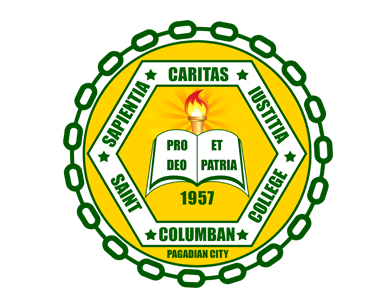Research Agenda for 2023-2029
SCC is committed to upholding high standards for the quality of research projects employees and students will undertake. The Research Agenda is vital for steering research and development initiatives in the right direction, ensuring they align perfectly with the needs of SCC stakeholders. It will guide us in our mission to serve the community with dedication and purpose. By prioritizing this agenda, we’re committing to groundbreaking innovation and pledging to make a tangible difference in the lives of those we’re here to serve. Creating the Research Agenda 2023-2029 involved careful consultation to ensure that it (i) aligns with the institution’s strategic planning process and (ii) meets national and international demands.
Consequently, this agenda aligns with the CHED’s National Higher Education Research Agenda – 2 (NHERA-2) 2009-2018, DepEd Order No. 39, s.2016 called “The Adoption of the Basic Education Research Agenda,” the National Economic and Development Authority (NEDA) Regional Research Agenda, and the Harmonized National R&D Agenda 2022-2028 (HNRA). Additionally, it complements the school’s Strategic Plan for 2023-2029. SCC research projects and engagements of faculty and students shall be aligned towards the following research themes:
- Transformative and Standardize Education and Technology
- Innovation in Business, Entrepreneurship, and Economic Development
- Responsible Environmental Stewardship
- Progressive Community Leadership, Development, and Governance
- Establishing Impactful SCCian Faith and Spirituality
THEME 1: Transformative and Standardize Education and Technology. This theme focuses on transforming the educational system and incorporating technology into learning processes to create a more dynamic, inclusive, and successful educational environment. It promotes standardizing instructional strategies and content across platforms to guarantee that everyone has fair access to high-quality education and to use technology to close learning gaps and adjust to the changing demands of the world. The research topics in this theme may include but are not limited to the following:
- Impact Assessment
- Outcomes-based Education
- Technology integration in teaching, learning, and assessment
- Creation and validation of New Instructional Materials
- Educational policy
- Inclusive Education
- Tracer and Cohort Studies
- Artificial Intelligence
- Teachers, students, and other stakeholders Satisfaction
- Standardized curriculum development and review
- Mobile Applications and web technology
- Learners’ achievement and performance
- IT security
- Machine Learning
- IoT ( Internet of Things) Technology
- Board Exams performance
THEME 2: Innovation in Business, Entrepreneurship, and Economic Development. This theme highlights the value of fostering innovation and creativity in business, entrepreneurship, food technology, hospitality management, and broader economic systems. It strongly emphasizes building environments that encourage calculated risks, creative thinking, and new business start-ups, all of which promote economic expansion, job creation, and sustainable development. The research topics in this theme may include but are not limited to the following:
- Economic growth
- Job creation and opportunities
- Financial literacy
- Technopreneurship
- Sustainable business
- Food technology and development
- Tourism and hospitality management
THEME 3: Responsible Environmental Stewardship. This highlights the urgent need for responsible management and conservation of natural resources. It calls for actions and policies that ensure environmental sustainability, reduce pollution, promote renewable energy sources, and encourage practices that protect and restore the natural world. The goal is to balance human needs with the planet’s health, ensuring a livable world for future generations. The research topics in this theme may include but are not limited to the following:
- Waste management and reduction
- Climate change
- Preservation and protection of the environment
- Ecological Sensitivity
- Renewable Energy
- Health issues, practices, and disease management
THEME 4: Progressive Community Leadership, Development, and Governance. This theme concentrates on creating progressive leadership and community-level governance frameworks while promoting inclusive, free, and fair decision-making procedures. It aims to strengthen social justice and peace, which contributes to improving the quality of life. It emphasizes the significance of community-led development programs, good governance, and human security, which meet local needs, foster resilience, and empower citizens. The research topics in this theme may include but are not limited to the following:
- Community extension
- Leadership Formation
- Environment Pollution
- Disaster Risk Management
- Social issues and concerns
- Access to basic government services
- Security issues of vulnerable communities
- Policy analysis
THEME 5: Establishing Impactful SCCian Faith and Spirituality. Establishing impactful SCCian faith and spirituality involves establishing a strategic direction in line with the community’s vision and core values. It ensures that every choice and action promotes inclusivity and synodality as part of being the School of the Lord serving humanity. The research topics in this theme may include but are not limited to the following:
- Evaluation of SCC identity, mission, and vision
- Religious Instruction and Catholic Formation
- Christian Faith and Catechism
- Synodality and Columban Spirituality
- Impact Assessment
- Integration of core values in every academic and non-academic club and organization
- Ecumenical programs and activities

